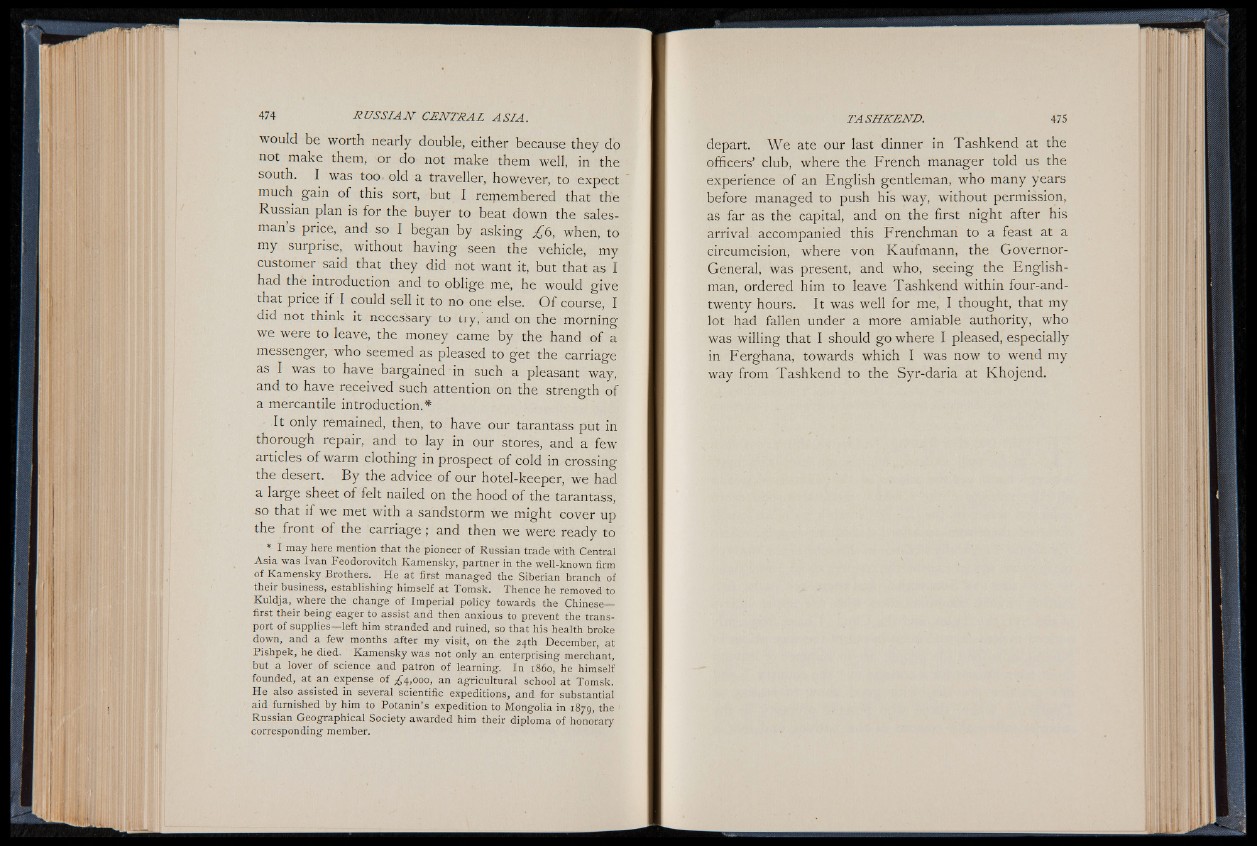
would be worth nearly double, either because they do
not make them, o r do not make them well, in the
south. I was too- old a traveller, however, to expect
much gain of this sort, but I remembered that the
Russian plan is for the buyer to beat down the salesman’s
price, and so I began by asking £6, when, to
my surprise, without having seen the vehicle, my
customer said that they did not want it, but that as I
had the introduction and to oblige me, he would give
that price if I could sell it to no one else. O f course, I
did not think it necessary to try, and on the morning
we were to leave, the money came by the hand of a
messenger, who seemed as pleased to get the carriage
as I was to have bargained in such a pleasant way,
and to have received such attention on the strength of
a mercantile introduction.*
It only remained, then, to have our tarantass put in
thorough repair, and to lay in our stores, and a few
articles of warm clothing in prospect of cold in crossing
the desert. By the advice of our hotel-keeper, we had
a large sheet of felt nailed on the hood of the tarantass,
so that if we met with a sandstorm we might cover up
the front of the carriage ; and then we were ready to
* I may here mention that the pioneer of Russian trade with Central
A s ia was Ivan Feodorovitch Kamensky, partner in the well-known firm
of Kamensky Brothers. He at first managed the Siberian branch of
their business, establishing himself at Tomsk. Thence he removed to
Kuldja, where the change of Imperial policy towards the C h in e s e^
first their being eager to assist and then anxious to prevent the transport
of supplies— left him stranded and ruined, so that his health broke
down, and a few months after my visit, on the 24th December, at
Pishpek, he died. Kamensky was not only an enterprising merchant,
but a lover of science and patron of learning. In i860, he himself
founded, at an expense of ,¿4,000, an agricultural school at Tomsk.
He also assisted in several scientific expeditions, and for substantial
aid furnished by him to Potanin’s expedition to Mongolia in 1879, the '
Russian Geographical Society awarded him their diploma of honorary
corresponding member.
depart. We ate our last dinner in Tashkend at the
officers’ club, where the French manager told us the
experience of an English gentleman, who many years
before managed to push his way, without permission,
as far as the capital, and on the first night after his
arrival accompanied this Frenchman to a feast at a
circumcision, where von Kaufmann, the Governor-
General, was present, and who, seeing the Englishman,
ordered him to leave Tashkend within four-and-
twenty hours. It was well for me, I thought, that my
lot had fallen under a more amiable authority, who
was willing that I should go where I pleased, especially
in Ferghana, towards which I was now to wend my
way from Tashkend to the Syr-daria at Khojend.